Due to the COVID-19 pandemic, the 24th Session of the Indian Ocean Commission was held by video-conference, from 2th to 6th November 2020. In advance of this meeting, the Global Tuna Alliance called for the Commission to:
- Adopt an effective rebuilding plan for yellowfin tuna;
- Ensure that the IOTC monitors & control catches of skipjack to ensure catches do not exceed the harvest control rule limit set by Resolution 16/02;
- Reform the Regulations of at-sea Transshipment;
- Ensure that short-term measures to suspend some observer coverage requirements are reinstituted as soon as practical
So how did the Commission perform?
Firstly, it is clear that the impacts of COVID-19 have presented challenges to the IOTC (and other regional fisheries management organizations (RFMOs)) in conducting meetings and addressing important conservation and management issues in 2020. While we do not believe current circumstances warrant the IOTC not taking action to ensure the uninterrupted sustainable management of the tuna stocks and marine ecosystems under its purview, we do recognize that the Commission had to prioritise their discussions.
However, the reality was that the priotisation exercise was poor. It had been agreed in advance that “no immediate actions are required on the existing [conservation management measures] CMMs that make reference to the year 2020” to “avoid matters which are typically complex and time consuming”. Yet, the Commission spent nearly 90 minutes (of a total of 600 minutes – or 15% of the available time) on the procedure to select the Executive Secretary!
The GTA was particularly disappointed that CMMs making reference to 2020 were not to be discussed as these included the interim rebuilding plan for the overfished yellowfin tuna stock (resolution 19/01).
The GTA has been clear that a 25% cut in catch is needed to rebuild the yellowfin stock in two generations, but upon learning that the issue would not be discussed, we, along with some other organisations, called on delegates, at a minimum, to request a special session of the IOTC to allow time to comprehensively discuss rebuilding the overfished yellowfin stock. The IOTC Rules of Procedure state that, during intervals between regular Sessions, the IOTC may convene special sessions of the Commission, if requested by at least one-third of its members. This would require the support of at least 11 IOTC countries.
We were pleased to see this proactively proposed by certain delegations at several times during the meeting – despite no specific agenda item. Several delegates repeatedly referenced a “market boycott” of Indian Ocean tuna, and this appeared to greatly stimulate the calls. Ultimately, it was agreed that a special session of the IOTC meets in March 2021 to discuss yellowfin tuna management.
In addition, the IOTC made welcome progress on a proposal on a Management Procedure for Yellowfin Tuna in the IOTC Area of Competence. One of the main components to a well-managed fishery is the implementation of an effective harvest strategy, also known as a management procedure and the GTA fully supports this proposal.
There was also widespread dissatisfaction at the lack of clarification around the discrepancies in 2018 catch estimates for Spanish vessels. With the EU receiving significant pressure to address the issue promptly.
The Commisson briefly discussed Resolution 16/02 (On harvest control rules for skipjack tuna) but no clear conclusions were reached.
The other issues of concern, reforming the regulations of at-sea transshipment and observer coverage, were not discussed and will continue to leave gaps for labour and human rights abuses, observer safety risks, and create opportunities for IUU fishing activities, fraud, and catch laundering. Insufficient monitoring also undermines traceability, the provision of required data collection, and effective implementation of bycatch mitigation measures.
In summary, it was manifest that the sourcing statements made by GTA Partners, and others, have had a significant impact on IOTC members. Despite the agenda limiting time to discuss the interim yellowfin rebuilding plan, several CPCs pushed hard for a special session to be held in March to focus on yellowfin management. We applaud their leadership, but note that robust action is still needed – the special session discussions must enthusiastically embrace this opportunity to adopt a conservation and management measure for the management and sustainable use of yellowfin tuna resources in the Indian Ocean.
The Global Tuna Alliance is an independent group of retailers, wholesalers and tuna supply chain companies, The Global Tuna Alliance (GTA) is an independent group of retailers and tuna supply chain companies, who are committed to realising harvest strategies for tuna fisheries, avoidance of Illegal, unreported and unregulated fishing (IUU) products, improved traceability as well as environmental sustainability, and progressing work on human rights in tuna fisheries.
